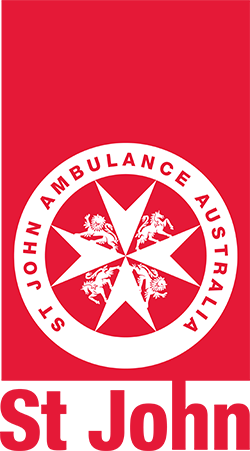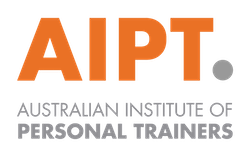In this post
Working in Disability: The Most Rewarding Jobs in the Industry

Disability is an industry that offers varied roles for every passion and every talent. It’s also an in-demand field – the demand is so high for disability workers in Australia that the skills and qualifications required to enter this industry are included on the Australian government’s Priority Skills List, making potential workers eligible for subsidised course fees.
The rollout of the National Disability Insurance Scheme (NDIS) in Australia has also brought many new job opportunities in the sector.
Many jobs in the sector pay well and/or have opportunities to work part-time and flexibly.
Jobs in the disability sector | Median pay |
|---|---|
Disability support worker | $59k |
Allied health worker in the disability sector | $79k |
Support coordinator | $79k |
Access and inclusion work | $70k |
Disability advocacy | $90k |
1. Disability Support Worker
The role involves:
- Providing personal care, such as assistance with dressing and hygiene.
- Taking clients to appointments, social activities and outings, and to the shops.
- Preparing meals and helping with household chores.
- Providing clients with social connection and support.
- Helping clients build skills that enable them to live independently.
Disability support workers (or carers) provide long-term, hands-on support services for clients with disabilities. They’re typically employed by disability service providers and support clients in their own homes and in the community.
They may also offer respite services: where families will usually care for an individual, a respite care worker enables families to take a break from caring duties.
You don’t technically need a qualification to become a disability support worker. However, many employers will prefer candidates to have completed TAFE studies in related areas.
Plus, getting a qualification is a useful way to learn about the industry, how to do the job well and safely and learn how to uphold the National Standards for Disability Services.
Relevant courses may overlap disability and aged care, and include:
- Certificate III in Home and Community Care
- Certificate III in Disability Support
- Certificate III in Individual Support
- Assistant in Nursing qualifications (such as Certificate III in Health Assistance or similar)
Average disability support worker salary:
Low
$56k
median
$63k
high
$77k
2. Allied health worker
Allied health workers use their specialist training and skills to promote the wellbeing of clients.
Allied health workers include:
Physiotherapists
They treat a wide range of conditions and injuries with exercises, massage and manipulation, and specialised tools. Physiotherapists can choose to specialise in rehabilitation (e.g. working with clients recovering from strokes or car accidents), or in specific disabilities/health conditions.
Occupational therapists
They help people experiencing injury and disability participate in their life as fully as possible. This may involve prescribing exercises, showing people adaptive tools, and activity and environment modification.
Social workers
They help people encountering problems in their life by providing emotional and practical support. In the disability sector, they can provide talk therapy, mental health support, make action plans to help people through challenges (e.g. returning to work, experiencing inaccessibility), and connect people to resources.
Speech pathologists
They assess, diagnose, and treat communication and swallowing disorders in adults, young people, and children.
Allied health workers are highly skilled professionals and working in these professions tends to require relevant training. At a minimum, you would be required to complete a relevant Bachelor’s degree qualification (which takes around 3 years full-time). Some specialisations may require further study.
What’s an alternative pathway into allied health?
If you’re looking to dip your toes into allied health work, alternative pathways are also possible. Some TAFE courses (such as Certificate IV in Allied Health Assistance) will qualify you to assist in service delivery under professional supervision. Working as an allied health assistant is rewarding work that will give you a good idea of what allied health is all about.
This can help you to get a feel for the job, and get paid for your work, before making an informed choice about whether to undertake further studies.
Average allied health worker salary:
Low
$56k
median
$72k
high
$111k
Average allied health assistant salary:
Low
$52k
median
$56k
high
$67k
3. Support coordinator
Like support workers, support coordinators are dedicated to increasing the independence of people living with disabilities. However, their work is less hands-on, and more focused on opening opportunities and thinking strategically. They work with individual clients to increase their confidence and ensure they’re well-supported.
The role involves:
- Helping people successfully apply for the NDIS, for JobActive opportunities, the Disability Support Pension (DSP), or similar government-provided support.
- Providing disability employment services to support clients in their existing jobs or to look for the right job for them.
- Supporting clients to use their NDIS funding in ways that are suitable to them and directed by them.
- Planning and coordinating career, education, and volunteering opportunities for people with disabilities.
- Helping people with disabilities build their skills, confidence, and healthcare and support networks.
Relevant requirements to enter this field might include:
Typically, there are no specific qualifications that are required for these roles. That said, many job advertisements expect some form of qualification in:
- Disability
- Social work
- Case management
It may be possible to gain entry from work experience, such as disability support work. You’ll also need to undergo a police check.
Average support coordinator salary:
Low
$70k
median
$82k
high
$102k
4. Access and inclusion
Many organisations, such as larger workplaces, TAFEs, and universities, employ people who ensure that policies and practices enable and encourage inclusion.
These roles have a range of titles, including (but not limited to):
- Access and Inclusion Coordinator
- Disability Liaison Officer
- Accommodation Manager
Regardless of job title, these workers ensure that organisations are a safe, inclusive place where everyone has an equal opportunity to thrive.
The role involves:
- Helping organisations identify opportunities to be more inclusive. For example, making buildings wheelchair accessible, installing hearing loops, and audio captioning recordings.
- Working with staff members or students with disabilities to help identify what access arrangements would support their work/learning, and making plans to implement those arrangements.
- Educating members of the organisation about disability and inclusion and putting together helpful fact sheets for reference.
- Helping the organisation meet its statutory requirements for making reasonable adaptations for staff/students.
- Reviewing new policies to consider their impact on access and inclusion.
Relevant requirements to enter this field might include:
Although these roles don’t tend to require any specific qualifications, you do need to demonstrate a thorough understanding of a wide range of disabilities. Lived experience can be particularly valuable, as can previously work in the disability sector.
Qualifications that would be advantageous include:
- Management
- HR
- Education Support
- Social work
- Disability and community services
- Or similar qualifications
You would also likely need to pass a police check.
Average access and inclusion salary range:
While the role of access and inclusion currently doesn’t have average salary data, recent job advertisements for this role reveal a salary range of $70-130k.
salary range
$70k to $130k
Job advertisement data was listed on Indeed.
5. Advocate
A range of non-profit organisations, hospitals, and government bodies employ advocates. When people in the community have complaints such as discrimination or exclusion, an advocate can be involved in resolving the situation and ensuring that individual rights are protected.
Some advocates will work on behalf of a range of marginalised groups, others specialise, for instance, in disability advocacy.
Working as an advocate may involve:
Helping people go through complaints procedures.
This involves understanding the correct and most effective avenues for complaints and filing relevant paperwork on behalf of clients.
Managing disagreements and complaints
Such as mediating disagreements, and escalating complaints if an appropriate resolution hasn’t been found.
Assessing clients to make submissions.
For example, submissions to Royal Commissions or reviews.
Reviewing government and organisational decisions.
Reviewing decisions made by governments or organisations to check if it upholds legal and social justice principles.
Advocating for those who can’t advocate for themselves.
In hospital settings, potentially advocating for individuals who are too unwell to drive their own advocacy. This may involve seeking second opinions, ensuring your client consents to treatment, and ensuring they’re getting appropriate care.
Empowering clients through knowledge and resources.
Generally, advocates will empower clients to speak for themselves but will provide useful knowledge and resources to assist. For example, they may know the relevant legislation or policies that the individual can use to make their complaint more effective.
Educating clients.
Teaching self-advocacy skills to people with disabilities and their families and friends.
Relevant requirements to enter this field might include:
Advocates do not require any specific qualifications. However, they will be knowledgeable about legal frameworks and social justice.
Studies in these areas can be incredibly useful:
- Law
- Disability studies
- Gender studies
- Political science
- Sociology
Average advocate salary:
Low
$80k
median
$92k
high
$119k
There are many ways you can make a positive difference in the lives of people with disabilities. The sector needs passionate people with a range of skill sets and experiences to bring care, support, creative strategies, inclusion, and justice to this diverse community.
Browse Disability Results
Certificate IV in Kitchen Management (Geelong Only) SIT40521
Are you an experienced industry professional looking for more than a standard cook’s qualification or dreaming of managing a professional kitchen? This course will equip you with the skills for both! You will learn all facets of organising a profession...
Certificate III in Retail SIR30216
Get ready to deliver excellent customer service with our nationally recognised SIR30216 Certificate III in Retail. Arm yourself with industry essential skills to engage the customer, work as part of a team, manage feedback and complaints, and deliver q...
Certificate IV in Interior Decoration MSF40122
This nationally recognised MSF40122 Certificate IV in Interior Decoration will help you turn your individual style into an exciting and creative career. Learn the skills to establish a successful career within the industry and open up a range of divers...
Certificate III in Individual Support (Disability) CHC33021
The disability sector is a fulfilling and interesting place for individuals who care about the rights and independence of others, and who are looking for a potentially flexible and stable career. The CHC33021 Certificate III in Individual Support (Disa...
Certificate III in Individual Support (Ageing) CHC33021
Get started in a career in aged care and learn the practical skills and knowledge needed to provide individual support to elderly clients. Open Colleges’ online Certificate III in Individual Support (Ageing) is an entry-level qualification that c...
Certificate IV in Social Media and Digital Marketing 11302NAT
Thinking of turning your time scrolling into a career? Studying the Certificate IV in Social Media and Digital Marketing will give you a foundation in using a wide range of social media tools and platforms. It’s the secret sauce for landing an entry-le...
User Interface Design
User Interface Design is a mindset and developmental process which involves creating user-friendly, aesthetically pleasing, digital interfaces. With a human-centred approach, UI designers prioritise “Designing things right” by incorporating...
User Experience Design
In an age where people’s attention spans are finite and user expectations run high, digital products and services can no longer thrive without consideration of their intended audience. UX is a mindset and human-centered process that focuses on...
Project Management for Professionals
As the complexity of our systems of work and delivery increase now and into the future, project management skills have become essential for life and work for most professionals — not just traditional project managers. Our Project Management for Profess...
Implementing Digital Marketing Campaigns
It’s official! Digital advertising spend in Australia is now bigger than TV, print and radio combined, according to IAB Australia. Facebook and Google continue to dominate the landscape with the ACCC estimating that 71 cents of every dollar spent on di...
Digital Marketing Strategy
With the rise of new digital platforms like Uber and freelancer.com, and an increasingly competitive and globalised business market, it’s never been more important to understand audience targeting, how to grow your brand, and how to optimise and measur...
Digital Graphic Design
Digital graphic design has been forecast by seek to grow 12.9% in the next 5 years. It is a unique and valuable skillset that allows you to tackle complex design challenges and create aesthetic, meaningful solutions that are both responsive and useful....
Developing AI Strategy
With 31% of enterprises expected to add AI into their strategy over the next 12 months (Adobe), it’s never been more important to upskill. Today’s neural networks and machine learning algorithms are more likely to drive an autonomous car, analyse prope...
Content and Social Media Marketing
With the amount of content that each of us are bombarded with increasing each day, how do you cut through the noise and stand out from the crowd? Content and social media marketing are at the heart of how many entrepreneurs and businesses connect with...
Business Analytics with SQL and Python
Business analytics is the process in which data is obtained, cleaned, and presented by teams and organisations to drive useful predictions and insights. Two ways in which businesses do this is through SQL and Python. SQL, or Structured Query Language,...
Business Analytics and Visualisation
Business analytics and visualisation utilises data to draw insights, helping inform a business’ decisions with improved accuracy and efficiency. In today’s era of customer-centricity, it’s vital that organisations use data to drive unique and valuable...
Certificate IV in Leadership and Management (VIC Only) BSB42015
This program provides participants with the essential knowledge and skills to undertake management positions. This includes assuming responsibility for their own performance, providing leadership, guidance and support to others. Our Promise Develop the...
Certificate IV in Business (Leadership) BSB40120
Advance your business career with nationally recognised leadership training The BSB40120 Certificate IV in Business (Leadership) provides you with the practical skills and theoretical knowledge to step up into leadership roles either in your current wo...
Certificate IV in Business (Business Administration) BSB40120
Advance your administrative career with a nationally recognised qualification The BSB40120 Certificate IV in Business (Business Administration) gives you the administrative knowledge and skills to climb the ladder in your existing organisation or apply...
Diploma of Sport, Aquatics and Recreation Management SIS50122
Turn your business acumen and passion for sports into a career with the Diploma of Sport, Aquatics and Recreation Management. If you have a passion for sports and a strong head for business, the SIS50122 Diploma of Sport, Aquatics and Recreation Manage...
Online courses also available
Latest Articles
Agriculture Careers: What You Should Know in 2025
As one of Australia's most important industries, the agriculture industry offers great career opport...
Are Digital Skills the Key to Job Security in 2025?
The digital revolution is here, and it doesn’t care if you have a technical job or not — it’s coming...
How to Become a Chef in Australia: Complete Guide for 2025
The complete guide to becoming a chef in Australia. Learn how to get your start and make it in the h...
Want to read more?
5 Short Courses to Make You More Employable, Quickly
If you're looking to increase your employability but aren't sure where to start, these short courses...
Free Big Five Personality Test: How Do You Score?
Take the free Big Five Personality Test now, learn about your personality type and traits, and disco...
How to Format Your Cover Letter [+ Examples]
Learn how to format your cover letter, and what you need to include. Use this example as a base to b...














